|
Waseda Bungaku’s charity project:
Japan Earthquake Charity
Literature
The earthquake and
tsunami that struck Japan on March 11, 2011 claimed
the lives of more than 15,000 people, displaced many
more times that number from their homes, schools and
workplaces, and triggered a nuclear accident whose
effects are sure to last for decades.
These
unprecedented events have forced people in Japan to
think and act in new ways. We recognize our
responsibility to mourn the dead and do what we can to
help the people whose lives have been turned upside
down. We realize that we are victims ourselves – both
of the short to mid-term damage from the earthquake
and the long-term damage from the nuclear accident. We
cannot escape the fact that we are somehow responsible
for the effects that the contamination from the
nuclear accident will have on current and future
generations both at home and abroad..
In towns
where street lights and neon signs have been dimmed
and where air-conditioning and the number of trains
running have been reduced, everyone – regardless of
whether they were directly affected or not – has been
thinking about what they can do as well as what it
means to use nuclear energy.
Writers are no
exception. Jean-Paul Sartre once famously asked what
literature can do for starving children. Each one of
us began to ask ourselves similar questions: What can
we write or not write? What can and should we be doing
other than writing? What is it that we really have to
offer?
The damage wrought by the disaster and
the reconstruction process that followed on the one
hand, and the accident at the nuclear power plant on
the other, each raised issues that had to be thought
about quite separately.
In responding to the
first, we searched for words to mourn the dead and
encourage survivors who were trying to get back on
their feet. Some tried to write pieces that would
bring solace to these survivors, while others composed
requiems, just as Shoyo TSUBOUCHI, one of the founders
of Modern Japanese literature, did in 1923 following
the Great Kanto Earthquake. It is often said that
“authors always arrive last”. Some made a conscious
decision not to write, choosing instead to write about
these events as history one day. There were those who
questioned the value of writing fiction, while others
did not hesitate to write when asked to do so. Some
considered it their duty as a writer not to be moved
by it all and chose to go on as always with daily
life.
It was (and continues be) terribly
difficult to find the words to offer those who have
been directly affected by the disaster. Faced with the
continuing effects of the nuclear accident, some shed
tears thinking of the people in Fukushima they had
grown up with; others joined demonstrations calling
for the government and the electricity company to be
held responsible for their mismanagement; still others
began to rethink the way they had lived, dependent on
electricity supplied by nuclear power; and some even
called for the need to reevaluate the modern era that
had “progressed” in that direction.
Such
reactions naturally extended beyond the borders of
Japan. We all imagined, lamented, and felt anger at
the thought of the many devastating disasters that
have shaken our world, the accidents that all kinds of
technologies have caused, and similar events that are
sure to happen again in the future, as if they were
happening to our neighbors, our friends, and to
ourselves. We think of Hemingway rushing to Madrid
with rifle in hand to report on the Spanish Civil War
as we head to Fukushima armed not with rifles, but
buckets and shovels.
But for those of us who
make a living by writing, it is clear that the biggest
contribution we can make is through doing what we do.
(Standing in front of a mound of rubble and debris
with shovels, we are far less useful than local high
school students.) Although they have used different
methods and approaches, all the authors who
participated in this project chose to try to do
something for the areas and people affected through
their writing. They all struggled in different ways as
they wrote these short pieces that have been made
available in English through the efforts of a number
of translators.
This program aims to give
serious thought to the disaster and accident, then
bring these words that were born, directly or
indirectly, through this thought process, to people
across the world. We hope that after reading these
texts you will choose to make a donation to the Red
Cross in Japan or in your country or to another
charity.
We hope that these pieces, written
for ourselves as much as for anyone else, will reach
people around the world, and eventually, in some small
way, also serve to help the people in northern Japan
who are now working hard to rebuild their
lives.
Makoto ICHIKAWA (literary critic / director
of Waseda Bungaku)
September 11,
2011
How to purchase the Waseda Bungaku
charity contents
On behalf of the East
Japan earthquake that occurred on March 11th 2011,
Waseda Bungaku has organized a charity
project that has gathered free of charge, newly
published stories by contemporary Japanese writers.
These stories were written primarily for use in
Waseda Bungaku’s charity project and for
distribution via the Waseda Bungaku website
in PDF form. An e-book publication of these stories
will also be made available in Japan. All proceeds
from sales will be donated to the families of victims
and survivors in areas affected by the disaster.
Literary works have been contributed by Hideo
FURUKAWA, Kazushige ABE, Mieko KAWAKAMI, Toh ENJOE,
Shin FUKUNAGA, Yasuhisa YOSHIKAWA, Jungo AOKI, Aoko
MATSUDA, Sayaka MURATA, Fuminori NAKAMURA, Akio
NAKAMORI, Furukuri KINOSHITA, Mayuko MAKITA, Maki
KASHIMADA and Kiyoshi SHIGEMATSU. Author profiles,
contributed short stories and essays can be found at
the following URL.
PDF files of all the stories
in this collection will be available to download from
the website until March 2012. Sending these PDFs to
third parties via e-mail, and posting the URLs to
third-party sites, is permitted. (though Waseda
Bungaku will take no responsibility for the
content of such third-party sites). However,
reproduction, in whole or in part, of the data on
these PDFs in any printed media by any unauthorized
third parties is strictly prohibited. Data alteration
is likewise strictly prohibited.
We hope that
after reading these texts you will choose to make a
donation to the Red Cross in Japan (details below) or
in your country or to another charity supporting
disaster relief. In case of data transfer, we suggest
you send us notification beforehand.
Kazushige
ABE
"RIDE ON TIME"
(click to download)
Translated by Michael
Emmerich |
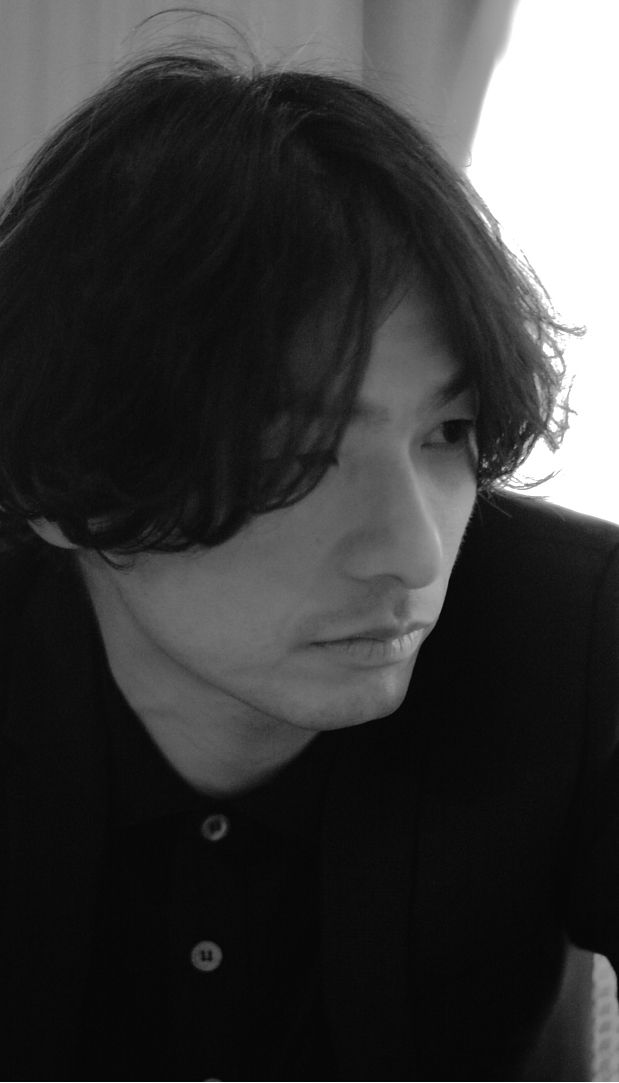 |
Kazushige Abe
was born in Yamagata in 1968. He graduated from
the Japan Academy of Moving Images.
In
1994, his novel Amerika no
Yoru ("The American Night") was
awarded The Gunzo's New Writers Prize. This
award was chosen by literary committee members
including Kojin KARATANI, who at the time had
considerable influence in the Japanese literary
scene.
Since then, he has established
himself as a literary pioneer. In 2004 his
full-length novel Sin-semilla received
The Ito Sei Prize and The Mainichi Publishing
Culture Award. With his novel Grand
Finale, published in 2005, he won the
most renowned literary award in Japan, The
Akutagawa Ryunosuke Prize.
His most recent
work, Pistils achieved The
Tanizaki Jun'ichiro Prize, garnering respectful
positive reviews. |
|
Hideo FURUKAWA
"Poola's Return"
(click to download)
Translated
by Satoshi
Katagiri |
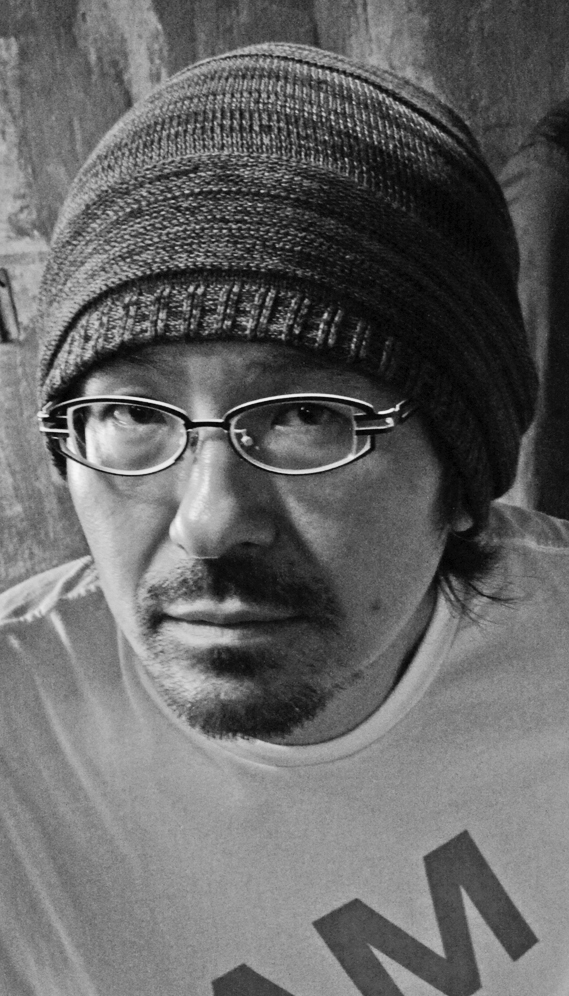 |
Hideo Furukawa
was born in Fukushima in 1966. He dropped out of
Waseda University.
He was a
playwrite while still in college and began
his career as a novelist in 1998. In 2002 with
the novel The Arabian Nightbreeds he
received The Mystery Writers of Japan Award and
The Japan SF Grand Prize.
Initially, he was
better known as a mystery and science fiction
writer. By 2006 on achieving The Mishima Yukio
Prize with the novel LOVE, he emerged as
an avant garde / experimental writer. He
collaborated with contemporary dancers, becoming
a young writer worthy of attention in the art
scene.
One critic described him as,
"Despite all of his various work styles and
experimentalism, the stories themselves are easy
to understand and this is where his exceptional
talent lies".
After the 2011 earthquake in
Japan he received invitations from New York and
various other regions of the world as a writer
native to the disaster-stricken area in Eastern
Japan. |
|
Mieko KAWAKAMI
"March Yarn"
(click to download)
Translated
by Michael
Emmerich |
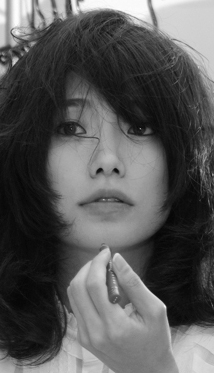 |
Mieko Kawakami
was born in Osaka in 1976. In 2007, she made her
debut with the novel Watakushiritsu in Ha -
matawa Sekai. This novel was widely
recognized as it became the nominee for the most
renowned award in Japan, The Akutagawa Ryunosuke
Prize. She won this award with the novel,
Chichi to Ran.
She was described as
"Depicting objects with shapes in front of her
eyes, like the touch of the hand, trailing her
finger tips through them, with her very own
stroke of gest. While she appears to be
freewheeling, in truth her ability to weave the
words with the utmost care is quite remarkable".
She is also active as a singer and a poet.
She was awarded The Nakahara Chuya Prize in
2009, with her poetry collection Sentan de
Sasuwa Sasareruwa Soraewa. Her first full
length novel Heaven won The prize of MEXT
(the Ministry of Education, Culture, Sports,
Science and Technology in Japan) and The
Murasaki Shikibu Prize.
She is widely
recognized as the most sought after writer in
Japan today. |
|
Shin
FUKUNAGA
"Almost Everything in the
World"
(click to
download)
Translated by Michael
Emmerich |
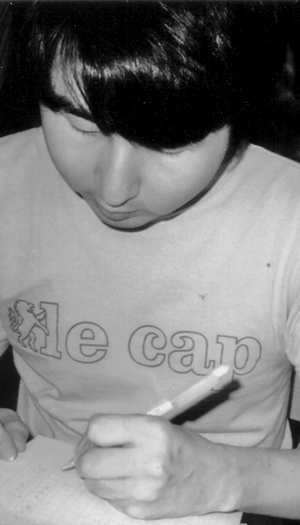 |
Shin Fukunaga was born
in Tokyo in 1972, he dropped out of the Kyoto
University of Arts and Design.
He began his
career when he published the novel
Yomioete ("After Reading") in 1998.
With the novel Acrobat
Zen'ya ("the Previous Night of
Acrobat") published in 2001 he brought the
horizontal writing style, uncommon in
conventional Japanese novel writing. Where
usually the reader reads in columns from the
right, in this novel the reader is led back to
the 2nd sentence of the 1st page, flipping
through pages in an unexpected way.
He has
collaborated with artists in many projects,
writing art reviews and publishing works which
constantly redefine the textual perspectives of
story telling. Acrobat Zen'ya has been
described as "Significant short stories where
the writer brings to us the utmost imagination
and sophistication. He rightfully manifests the
true meaning of the word 'Acrobat'. It is here
we find the utopia and liberty in fiction
writing". |
|
Toh ENJOE
"Silverpoint"
(click to download)
Translated
by Jocelyne
Allen |
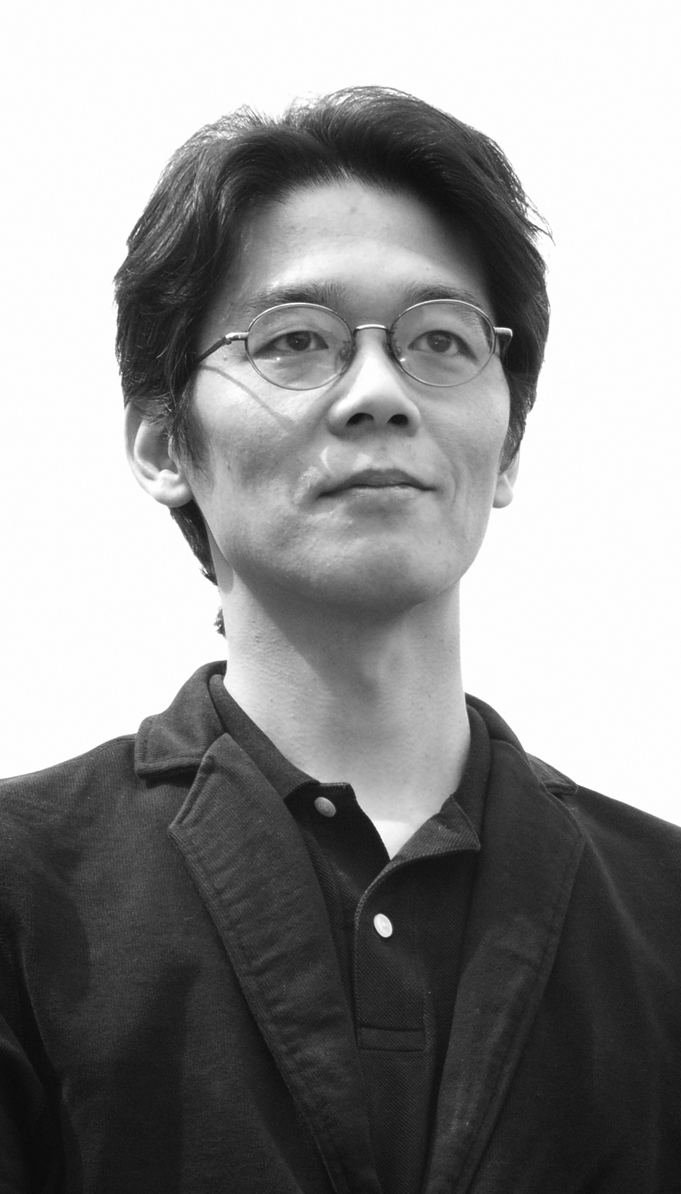 |
Toh EnJoe was
born in Hokkaido in 1972. After completing a
Ph.D. in arts and sciences at the University of
Tokyo, he became a researcher in theoretical
physics.
He made his debut into the world
of literary novels with the story Of the
Baseball. Around the same period, he entered
the world of science fiction with
Self-Reference ENGINE. He is considered
as a writer capable of crossing various genres.
In 2010 he released U Yu Shi Tan
which received The Noma Literary Prize for New
Writers, a newcomers award organized by
Kodansha, Japan's largest publisher. In 2012, he
won The Akutagawa Ryunosuke Prize which is the
most renowned literary award in Japan, for his
novel Dokeshi no Cho ("Butterflies of a
Harlequin").
Yoko TAWADA, a writer who
spans both the German and Japanese literary
scenes, writes that EnJoe is "A writer who
extends his interests from the field of natural
science onto contemporary poetry. He absorbs the
far reaches of eastern and western culture,
widening the terrains of various categories. In
doing so, he questions our existence, through
introducing the readers to an unconventional
reality." |
|
Aoko MATSUDA
"Planting"
(click to download)
Translated
by Angus
Turvill |
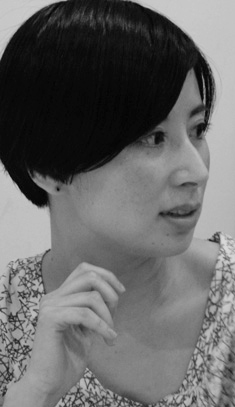 |
Aoko Matsuda was
born in Hyogo in 1979. She graduated from
Doshisha University Faculty of Letters,
Department of English. She published her first
novel in 2007.
Her keen mixture of
rhythmical spoken language and bookish
sensibility suggests fresh possibilities for
Japanese literature. Of her small number of
publications to date, the short story in this
collection is the first to be translated into
foreign languages. She looks set to become one
of Japan's leading young authors. |
|
Akio NAKAMORI
"The Day the World Ends, We...
2011"
(click to
download)
Translated by David
Boyd |
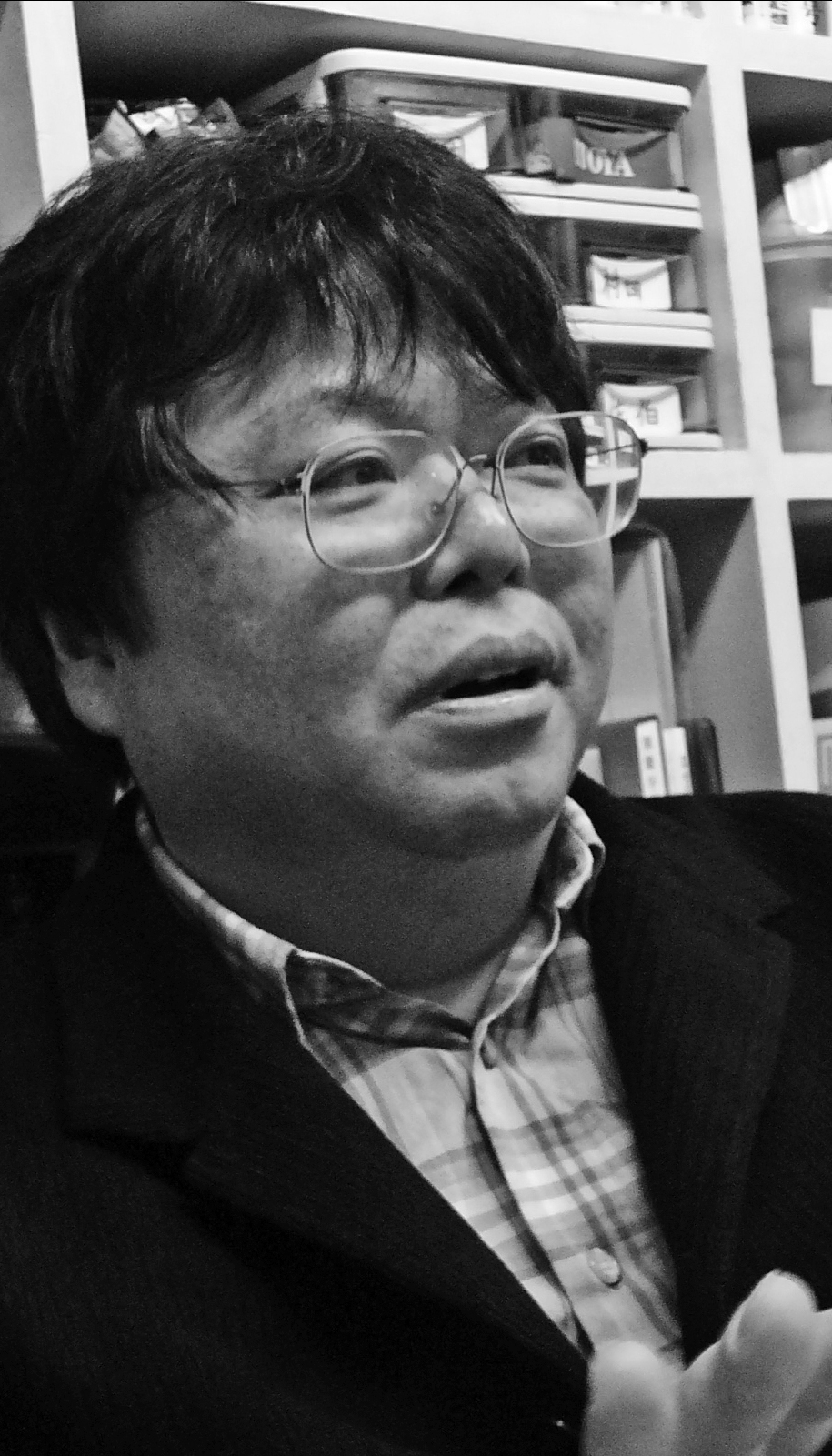 |
Akio Nakamori
was born in Mie in 1960. He dropped out of Meiji
University High School.
He has been active
as a columnist and as an editor for sub-culture
related articles. He was widely regarded as one
of the leading figures of the new herd of
writers for the post-modern writing genre in
Japan. Such writers include Professor of
Religion, Shin'ichi NAKAZAWA and Philosopher
Akira ASADA. He is well known as the writer who
popularized the word "otaku" in the mass media,
a word widely used around the world today.
As a novelist, he portrayed the anarchist
Sakae OSUGI who was an activist in 1920's Japan.
He revived Osugi in the present age with the
novel Anarchy in the JP published in
2010. It became a nominee for The Mishima Yukio
Prize. The novel was described as "A story
written for every boy and girl living in the
21st century".
He published a story in the
1980's called Sekai no Owarini,
Bokutachiwa... which is included in the book
Tokyo Tongari Kids. In this novel he
describes an end of the world image along with a
sound track of popular music of that time period
and a bicycle named Chernobyl. The story in this
charity collection is a 2011 rewrite of this
short novel. |
|
Mayuko MAKITA
"Signals"
(click to download)
Translated by Allison
Markin Powell |
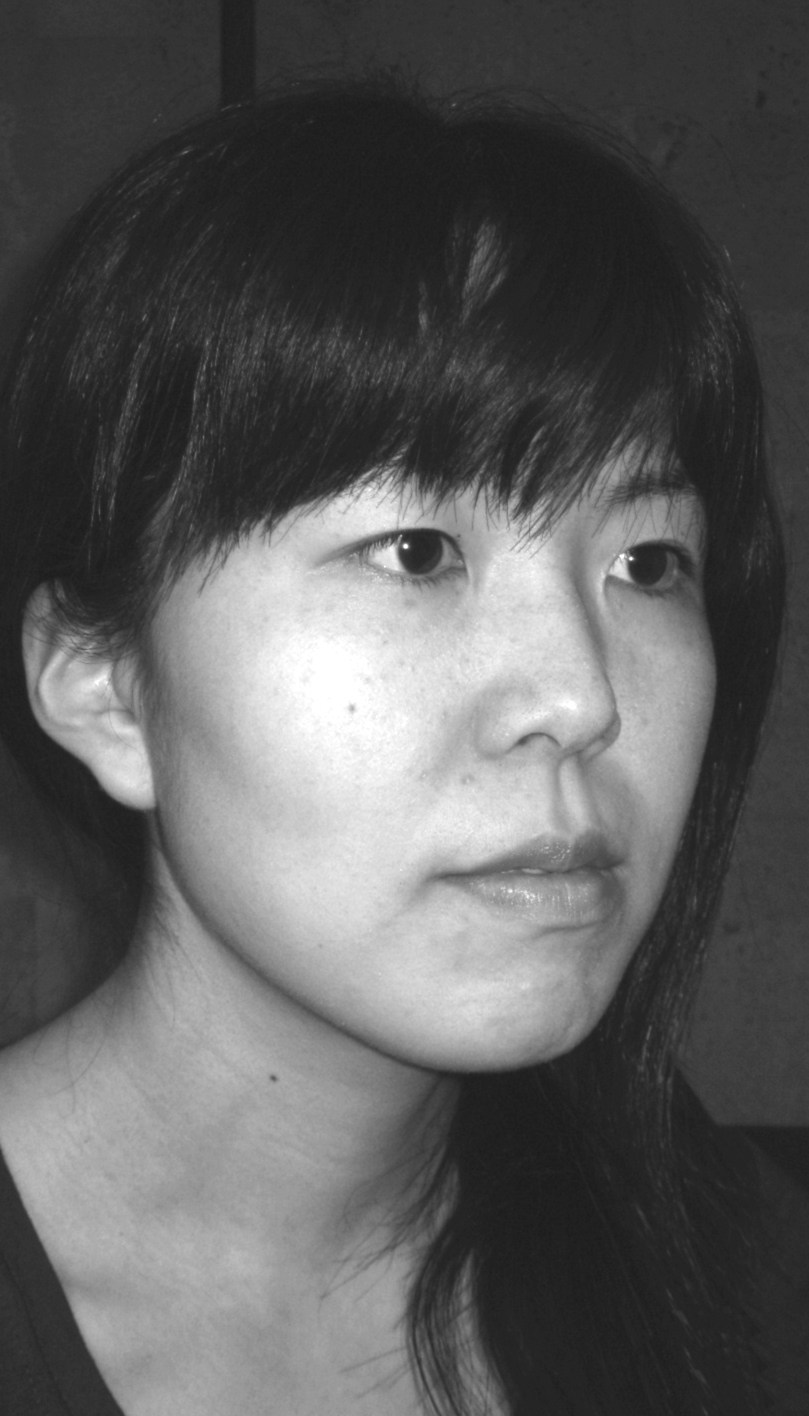 |
Mayuko Makita
was born in Kyoto in 1980. In 2007, she received
an Encouragement Award from the enduring The
Bungakukai's New Writers Prize for her short
story, Isu ("The Chairs").
The
story describes a protagonist in a state of
ontological anxiety, engaged in dialogue with an
unusual secondary character, observing
themselves according to their own particular
coordinates.
Makita has not written much
fiction, but the writing of this talented young
author is eagerly anticipated in literary
magazines. |
|
Fuminori NAKAMURA
"When the Earthquake
Hit"
(click to
download)
Translated by Michael
Staley |
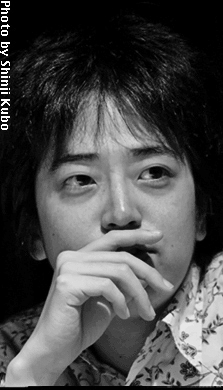 |
Fuminori
Nakamura was born in Aichi in 1977. He debuted
as a writer in 2002, when he won The Shincho's
New Writers Prize for his novel Ju ("A
Gun").
In 2004 he received The Noma
Literary Prize for New Writers, for Shako
("Shade"). And in 2005 he was awarded the
Akutagawa Ryunosuke Prize- Japan's most
prestigious literary award for new writers.
Within the short span of a few years, he has
achieved much acclaim.
In 2010 his novel
Suri ("The Thief") won The Oe Kenzaburo
Prize, awarded by the Nobel Laureate himself. Oe
described the novel as, "A work done by a writer
who realizes the possibilities of introducing
the contemporary perspective into the form of
todays novel writing."
Nakamura has been
translated into various languages and The
Thief will be published by Soho Press (N.Y.)
in March 2012.
(Photo by Shinji Kubo)
|
|
Jungo AOKI
" Special Edition: Sack-toting
Turtle Spotted in West Ikebukuro "
(click to download)
Translated by Ian
MacDonald |
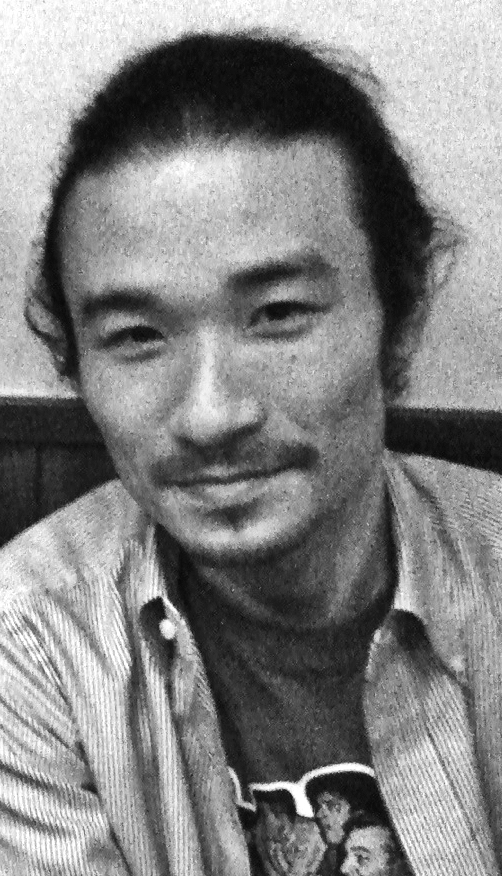 |
Jungo Aoki was
born in Saitama in 1979 and graduated from
Waseda University.
In 2003 he received The
Shincho's New Writers Prize for his novella
Yonju-nichi to Yonju-ya no Meruhen
("Forty Days and Forty Nights in Märchen"),
which was republished in book form in 2005
together with the short story Kureta No
Hotoride ("On the Edge of the Crater"). This
book earned him The Noma Literary Prize for New
Writers, sponsored by Kodansha, Japan's largest
publisher.
An established fellow writer has
praised Aoki as "the Japanese Thomas Pynchon."
|
|
|
Yasuhisa
YOSHIKAWA
" SNOW DUSK, DEATH DUSK
"
(click to
download)
Translated by Lucy
North |
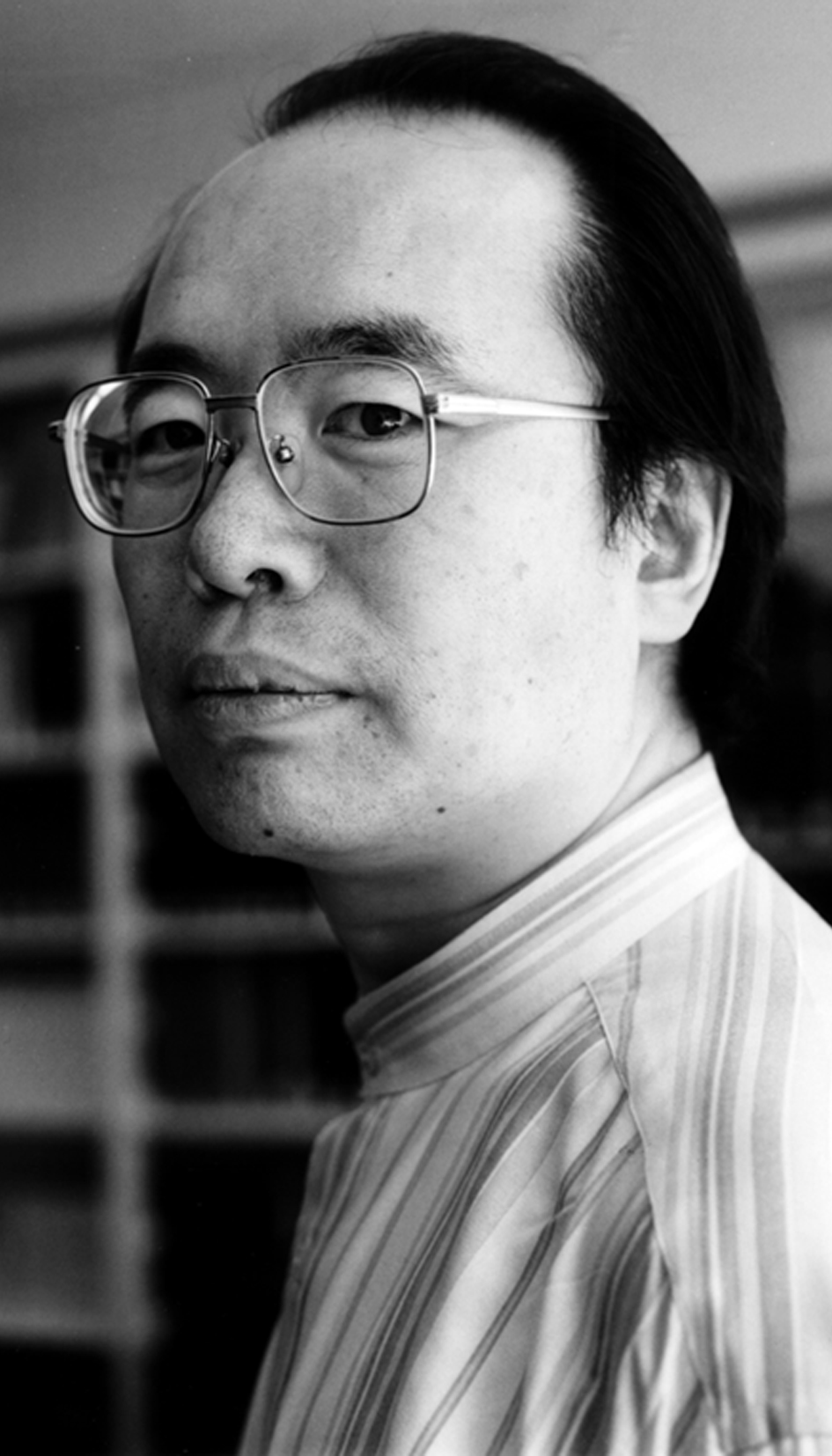 |
Yasuhisa
Yoshikawa was born in 1951. He has a
post-doctoral degree from Waseda University
Graduate School of Letters, Arts and Sciences.
Active as a translator and critic of
contemporary Japanese and French literature, he
started publishing novels relatively recently.
In 2010 his novel Kantai ("Hospitality")
was awarded The Kojima Nobuo Prize, an award
named after one of the most important writers of
Japan's post-war era.
Yoshikawa's works of
criticism include Murakami Haruki &
HARUKI MURAKAMI - Seishin Bunseki Suru Sakka
and Deleuze, Sen no Bungaku (both
co-authored). His translated works include
Les Georgiques by Claude SIMON.
|
|
Sayaka MURATA
" Lover on the Breeze
"
(click to
download)
Translated by Ginny
Tapley Takemori |
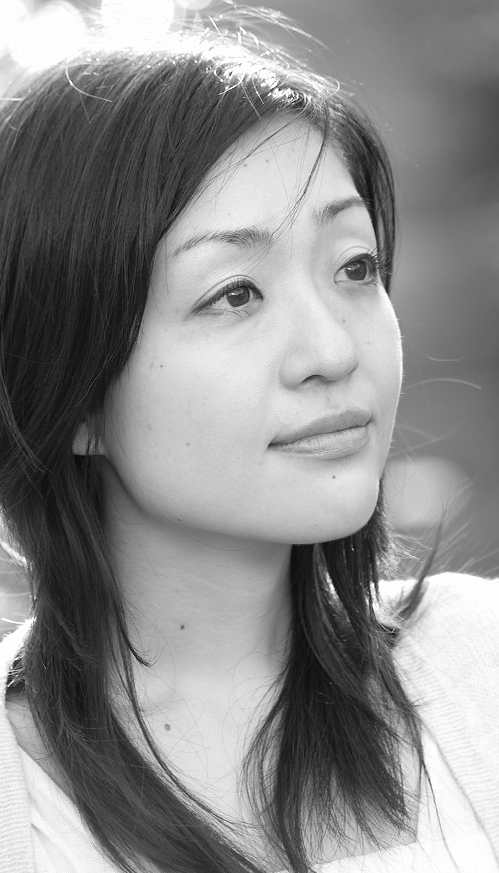 |
Sayaka Murata
was born in Chiba in 1979 and graduated from
Tamagawa University.
In 2003, her novel
Ju'nyu ("Suckling") received the Award
for Excellence in the Gunzo's New Writers Prize
sponsored by Kodansha, Japan's largest
publisher. This story, with its echoes of Simone
de Beauvoir, has won her many fans. In it she
depicts the sexual behaviors of human females,
gradually moving towards a departure from the
duality of the sexes with the emergence of "the
third sex." Her 2009 novel Gin-iro no uta
("A Silver Song") won The Noma Literary Prize
for New Writers.
The well-known writer
Mitsuyo KAKUTA commented that, "The central
motifs of her novels may be appreciated by
readers of all ages anywhere in the world."
|
|
|
Kiyoshi
SHIGEMATSU
" To Next Spring - Obon
"
(click to
download)
Translated by Angus
Turvill |
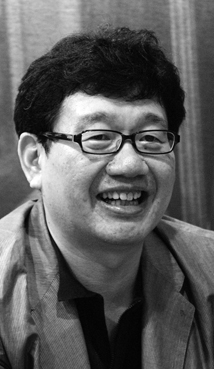 |
Kiyoshi
Shigematsu was born in 1963. He graduated from
Waseda University.
He started work on the
literary journal Waseda Bungaku while
still a student, guided by established writers
such as Kenji NAKAGAMI. He became an editor and
free-lance writer, publishing his first novel in
1991.
In 2000, with Vitamin F he won
The Naoki Sanjugo Prize, Japan's leading award
for broad-appeal literature. Conveying a strong
sense of family warmth and love, his works
attract a wide readership. He continues to
foster a reputation as one of Japan’s leading
popular writers, and in 2010 received The
Yoshikawa Eiji Literary Prize, named after
Japan's foremost historical novelist.
He has
visited the Tohoku region many times to report
on the March 11 earthquake and to support the
victims. His visits have also provided the
background to the series To Next Spring ,
of which this story forms a part. In this series
we witness the full force of the author's
literary talent. |
|
Maki KASHIMADA
" The Interview "
(click to download)
Translated by Jocelyne
Allen |
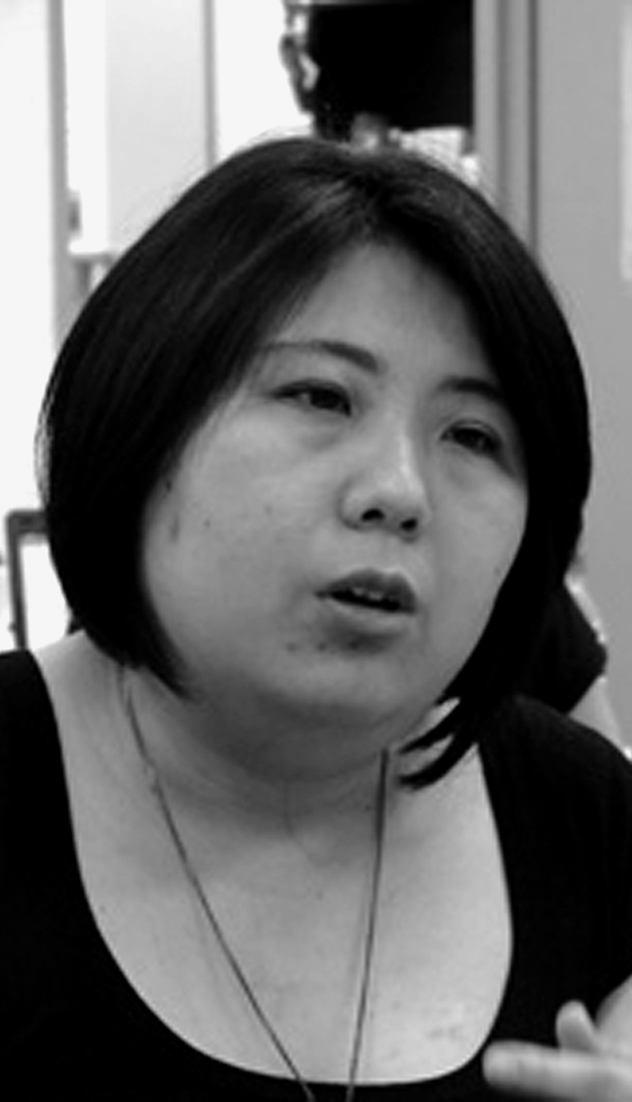 |
Maki Kashimada
was born in Tokyo in 1976, and graduated from
Shirayuri College.In 1998, her first novel,
Nihiki ("Two"), received the Bungei
Prize, an award received by many well-known
authors in Japan.
Rokusendo no Ai
("6,000 Degrees of Love"), a novel based in
Nagasaki, the second city to have the atomic
bomb dropped on it, won The Mishima Yukio Prize
in 2005.
Masahiko SHIMADA, one of Japan's
leading post-modern literary figures, refers to
Kashimada as "a writer earnestly working towards
the issues of expressing the inexpressible. She
blends the ever-changing consciousness of the
present and past into the perspective of the
present. This literary style, like the tide of
the river, was the method widely used by
Marguerite DURAS." |
|
Furukuri KINOSHITA
"
The Cambrian
Palace Bombing Project"
(click to download)
Translated
by Satoshi
Katagiri |
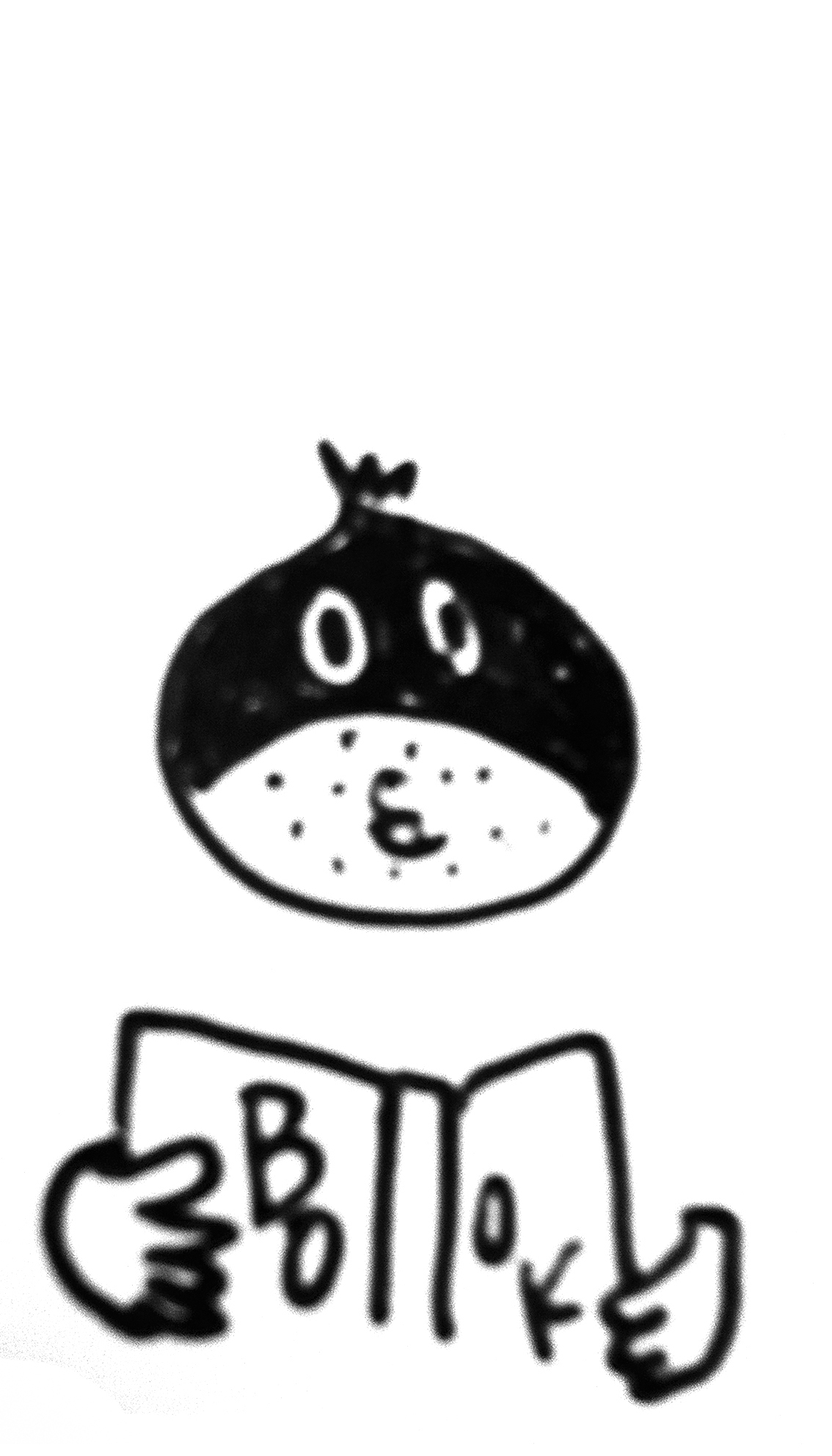 |
|
Furukuri Kinoshita was born in Saitama
in 1981. In 2006 he made a debut with Mugen
no Shimobe which received The Gunzo's New
Writers Prize, an award sponsored by Kodansha,
the largest publisher in Japan.
His appeal
is his post-post-modern literary style. With
Iionna vs. Iionna published in 2011 he
was written of as, "Furukuri Kinoshita's talent
lies where he blends an almost bizarre
preciseness that he uses to great effect. His
work represents an eccentricity that is
awe-inspiring."
(illustrated by Asuka
ASAHINA)
|
|
Donation Bank Account
1
Name of Bank: Sumitomo Mitsui
Banking Corporation
Name of Branch:
Ginza
Account No.: 8047670 (Ordinary
Account)
SWIFT Code: SMBC JP JT
Branch
Number: 026
Address of Bank: Ginza Joint
Building 6-10-15 Ginza Chuo-ku Tokyo
JAPAN
Payee Name: The Japanese Red Cross
Society
Payee Address: 1-1-3 Shiba-Daimon
Minato-ku, Tokyo JAPAN
Donation Bank Account
2
Name of Bank: The Bank of
Tokyo-Mitsubishi UFJ, Ltd.
Name of Branch:
Tokyo Government and Public Institutions
Business Office
Account No.:0028706(Ordinary
Account)
SWIFT Code: BOTKJPJT
Branch
Number: 300
Address of Bank: 3-6-3 Kajicho
Kanda Chiyoda-ku Tokyo JAPAN
Payee Name: The
Japanese Red Cross Society
Payee Address:
1-1-3 Shiba-Daimon Minato-ku, Tokyo
JAPAN
Donation Bank Account
3
Name of Bank: Mizuho Bank,
LTD
Name of Branch: Shinbashi Chuo
Branch
Account No.: 2188729 (Ordinary
Account)
SWIFT Code: MHBK JP JT
Branch
Number: 051
Address of Bank: 4-6-15 Shinbashi
Minato-ku Tokyo JAPAN
Payee Name: The
Japanese Red Cross Society
Payee Address:
1-1-3 Shiba-Daimon Minato-ku, Tokyo
JAPAN
(All bank accounts above
are open until March 31,
2012.) | |